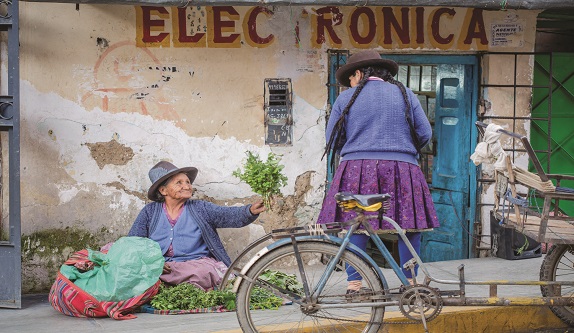There’s much to reflect on when asked about why we travel, Kimberley Williams says.

I remember clearly my first travel experiences: hot trips in smelly cars punctuated by stops at diners to fill up on gas and hotdogs – today’s equivalent being organic penne with olive oil and fresh parmesan. Long stints on bitumen were managed with entertainment invented by iPod-deficient kids: making forts out of whatever could be found, playing ‘eye spy’ – admittedly a hard game in a moving vehicle – and, immediately following a pit-stop at the diner, spit ball fights.
As a young adult I hightailed it to Paris for a year to work and study. I remember my good friend pulling me aside in the airport before leaving. Her interrogation had an air of urgency. ‘Why are you going? You don’t have to go, you know – you have nothing to prove’. My only reply was a smile. I knew I didn’t have the words, and she didn’t have the inclination to understand why I should – and why we all should – go.
Fast-forward five years, the travel bug had surely bitten as I worked and travelled through both North and South America, and even Antarctica. As a student of life and an itinerant worker I was too busy to stay disappointed with the dwindling responses to my travelogues. By the time I topped off the last adventure of my single life, old friends were few, and new friends were many.
Fast forward again, and as a family we have worked, lived, and travelled afar in our 12 years as expats. In light of these adventures, I may have finally come up with some possible answers to those friends who wondered why I never stopped travelling, and even to those who wondered why I left in the first place.
First, travelling presents a fantastic opportunity to learn a language. In my 30-some years of attempting to learn a foreign parlance, I can assert that travel is indeed the best way to learn – proven somewhat by the fact that I can still say ‘good morning’, ‘thank you’ and ‘beer’ in five languages without really thinking about it.
Travelling also presents the possibility of regularly doing something new and challenging. Climb a mountain, visit a temple or spend time in a refugee camp. These are things you don’t do at home, either because there is little reason to break out of your routine, or there just isn’t the opportunity.
Travelling also allows me to meet people from other countries and situations that I would never meet otherwise, as well as develop a tolerance for diverse opinions. Having never been to church I find it interesting to note that some of our closest friends are big believers, and still others sit firmly on the opposite side of the political spectrum – but let’s not bring up gun control!
As expected, meeting local folks is really one of the best, if not the best reason to travel. Although language barriers can complicate this, it actually also makes what you can understand in Swahili or Mandarin all the more interesting.
Through speaking basic Mandarin I have spoken with a woman in China whose grandmother, as a young girl and new wife, had her feet bound by her mother in law to purportedly limit her movements. Not speaking a language isn’t an issue either: having a child hold your hand and lead you through a vegetable patch, speaking shyly in Swahili is just as sweet an experience than fully understanding what is being said.
Lastly, and most importantly, travelling changes who you are – and thank goodness, at least in my case, for that. It took a basically self-centred, inexperienced and unworldly monolinguist, and turned her into someone who is less of all those things – which is of course, a wonderful thing.








